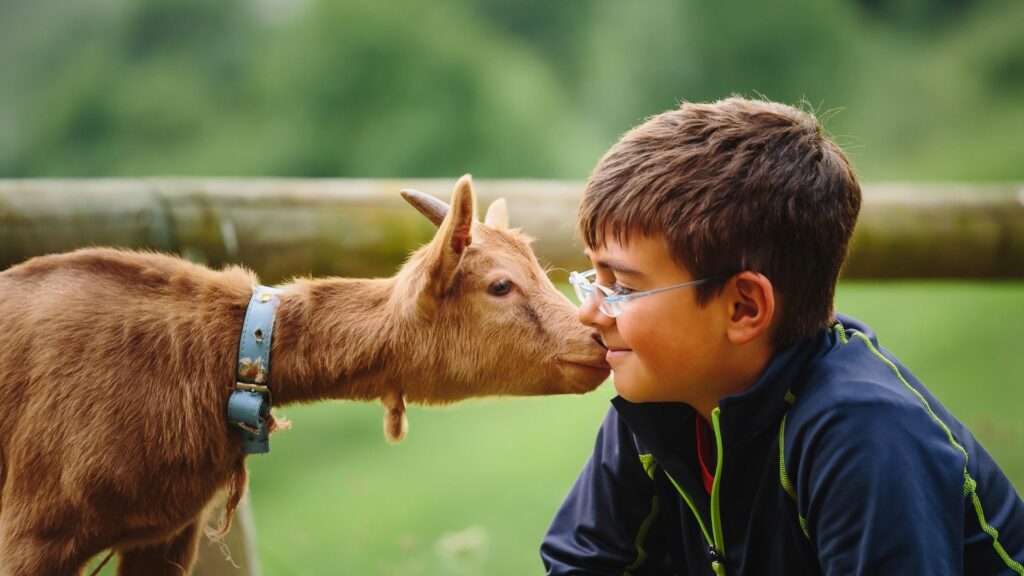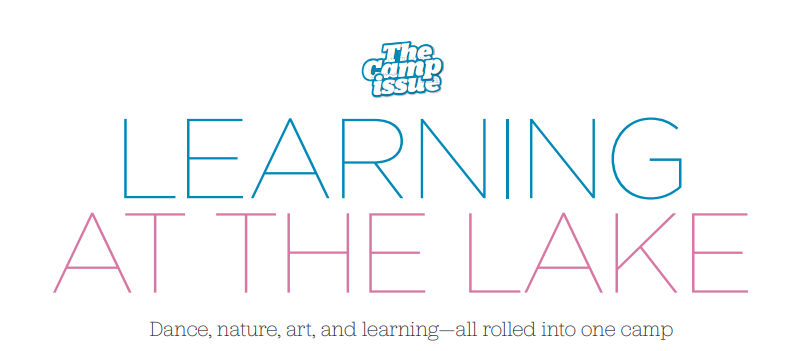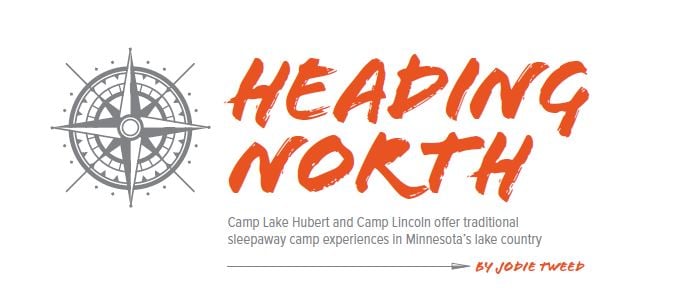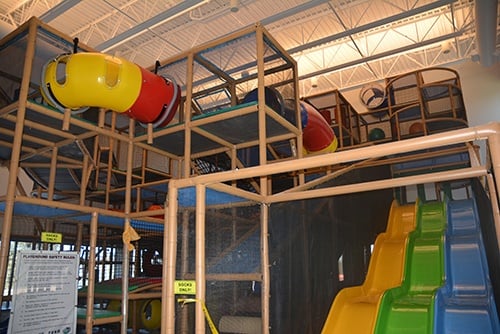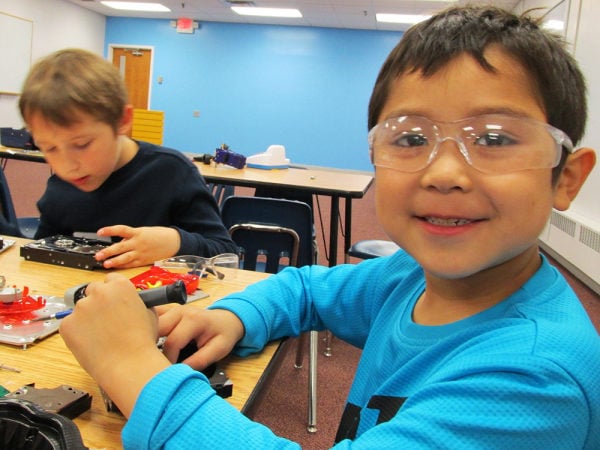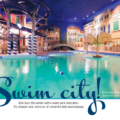Teens on the autism spectrum learn basic outdoor survival skills at this one-of-a-kind adventure camp.
Determined, Ben, a 17-year-old camper, hit two pieces of flint and steel together.
Drowning out the sound of other campers, it was just him, the woods and the rhythm of rock hitting metal.
On his fifth hit, he barely missed the steel rod, landing the flint on his finger and cutting a small slit. He calmly wiped away a spot of blood and continued to strike the two together.
After a few more tries, Ben made his first spark! His face lit up.
“Building a fire is fun,” he said. “It’s very interesting to be outside, and get to know all the things that you wouldn’t know about nature.”
Within 10 minutes, Ben had burnt a few pieces of paper using the flint and steel, while other kids were tending flames using other methods.
Ben was attending the fourth-annual Outdoor Adventure Skills camp last summer, in which kids learn how to create a shelter, geocache in the forest, explore nature and, yes, even build fires.
Hosting kids ages 13–18, this camp — created through a partnership between the Three Rivers Park District and the Autism Society of Minnesota — is special because it’s tailored to kids on the autism spectrum.
“Getting [kids] outside begins the appreciation of nature,” said Cristina Palmisano, an interpretive naturalist and leader of the camp. “It’s the beginning of environmental awareness to be out in the resource and appreciate it, which later on down the line will lead to decisions that are pro-environment and people who will become stewards of the environment, especially if they have early experiences in nature.”
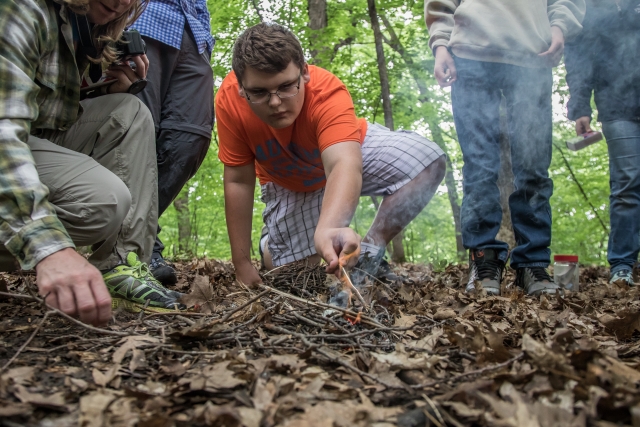
A day at camp
At this four-day mornings-only day camp — which will be offered to a limited number of kids this coming June and July at Three Rivers nature centers — campers learn one new adventure skill each day and take part in activities to complement it.
During fire building, campers went into the forest, where they learned how to make a fire with a match. Later, they learned ways to start a fire with flint and steel, a battery and steel wool, and even a bow drill.
At the end of each day, campers get to meet and hold an animal that lives in the nature center, learning about its habitat, what it eats and how the animal functions.
Palmisano said the animals appear to be the kids’ favorite part of camp.
“It’s such a big part of the experience, they really love it,” she said. “And then, being able to hold the animals — which you don’t often get to do at the nature centers — is a big hit.”
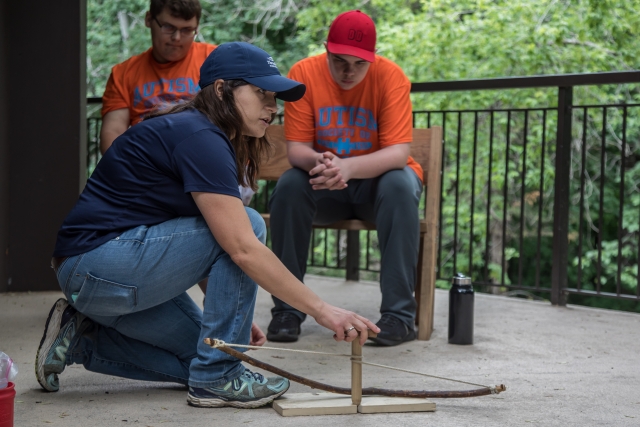
Overcoming obstacles
To cater to kids on the autism spectrum, the Autism Society of Minnesota sends staff members to help with various autism-friendly camps to offer expertise and guidance.
To make the camp more effective for campers, there are only 12 openings, assuring more individual attention.
Participants must be able to demonstrate self-care skills without assistance, independently follow adult direction and safety rules and show readiness for large group participation, including remaining with the group at all times.
Palmisano said not all kids respond the same way to the activities.
“It’s hard because you’re used to getting feedback from students,” she said.
Normally, she can tell kids are learning merely by noticing that they’re engaged in the various activities.
“But if they are in the corner or not responding, you don’t know if they like the activity,” Palmisano said, adding that she’s moved to using more visual communication with pictures.
These “social narratives” allow campers to gain a sense of what they’ll be doing and imagine themselves participating.
Additionally, Palmisano has found that going outside is one of the kids’ favorite activities, as it can have a calming effect.
Autism Society of Minnesota staff member Jessica Koolick, who works with kids during the camp, said keeping campers engaged in the traditional sense needn’t be an absolute priority the way it might be with other kids.
If a child would rather throw around sticks than build a fire, Koolick said, it’s OK as long as that kid isn’t disrupting the activity for the others.
“One thing I have learned is that none of it is personal,” she said. “And you can’t tell by looking at a kid’s face if they like an activity.”
You just have to ask.
“They will tell you if they hate it,” Koolick said. “They will tell you if they love it.”
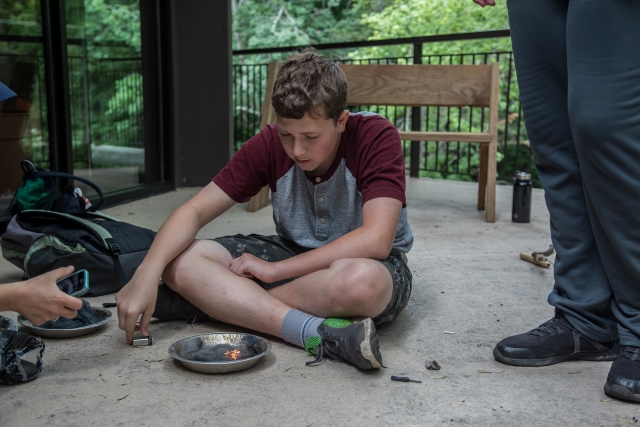
Camps for all
The Three Rivers Park District actually offers an enormous variety of camps — more than 150 for kids of all ages and interests. (See threeriversparks.org.)
With more than 27,000 acres of parks and trails, the 61-year-old district is focused on promoting environmental stewardship through recreation and education.
Outdoor education supervisor Allison Neaton said it’s especially important for kids to get outdoors during the summer, given the increasing amount of work that now requires screen time during the school year.
“It’s just great to see these kids get immersed into experiences where they are using their imagination and critical thinking skills to enjoy spending time outside,” she said.
It can also encourage a lifelong relationship with the natural world.
“Ultimately, [kids will] want to be good stewards of the planet and make choices that honor the planet to help sustain the same environment, parks and resources we have now into the future,” Neaton said.
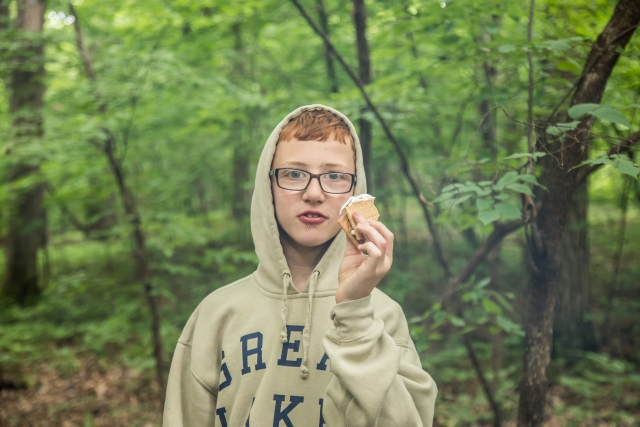
One of a kind
As for the Outdoor Adventure Skills camp, Palmisano said she’s loved every part of it, especially seeing it grow in the four years since she started it.
Kids get to explore forest, pond and prairie habitats; build a survival shelter with other campers; and gain skills to navigate — and overcome obstacles — in the forest.
Other benefits include making friends and practicing communication skills during safe, off-trail adventures away from the comforts of home.
She hopes campers walk away with experiences they normally wouldn’t get in school — and that they have fun along the way.
“There are not many camps like this,” Palmisano said. “To be outdoors — and especially for older kids on the autism spectrum — it’s unique.”
Outdoor Adventure Skills
Designed in partnership with the Autism Society of Minnesota (AuSM), this morning day camp allows kids on the spectrum to learn about nature and practice outdoor survival skills with a naturalist. The Three Rivers Park District is an expansive park system offering more than 150 camps each summer to kids of all ages and abilities.
Ages: 13–18
When and where: Lowry Nature Center, Victoria or Eastman Nature Center, Osseo.
Info: ausm.org, threeriversparks.org
Many campers say their favorite part of Outdoor Adventure Skills camp is getting to meet and learn about a new animal each day. Photo courtesy of Three Rivers Park District.
Abby Doeden is a journalism student at the University of Wisconsin-Madison and a local freelance writer. She’s volunteered and worked for the Three Rivers Parks District for the past 10 years.



